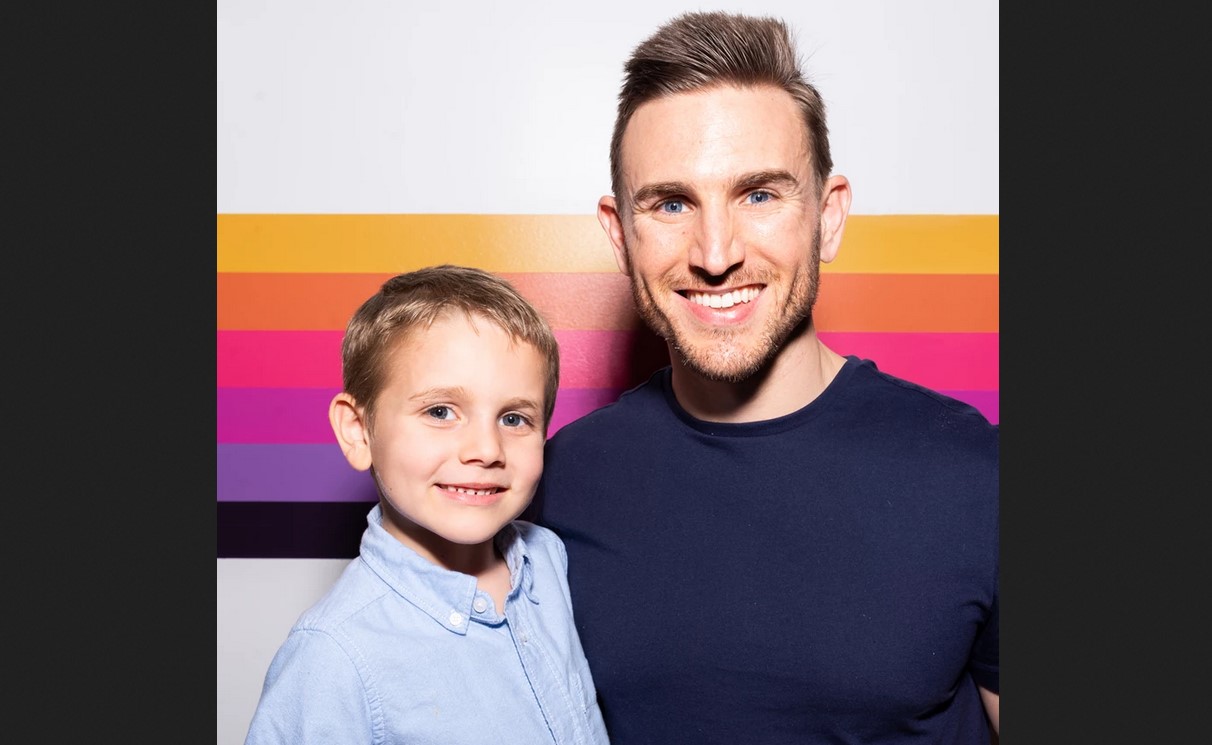Chris Turner is inventing an entirely new category of education. It’s not school and it’s not homeschool, and it doesn’t fit neatly into existing regulatory frameworks. Turner’s startup, Moonrise.com, is truly an out-of-the-box learning model that too often gets boxed in, preventing its ability to launch or grow in certain US states.
Turner decided to create Moonrise when he couldn’t find an ideal education option for his son. His five-year-old didn’t get a spot in the kindergarten lottery at a local charter school. Conventional public and private schools seemed too stifling, and homeschooling seemed desirable but daunting. So, as a successful entrepreneur whose technology startup got acquired in 2017, Turner decided to build the educational model that he wanted but that didn’t yet exist.
Located in Decatur, Georgia, Moonrise is a drop-off, co-learning, membership-based community for children ages 5 to 15 that is open from 9 am to 9 pm, seven days a week, all year. Families can use it as an affordable part-time or full-time schooling alternative for homeschoolers during the day, or as a supplemental learning space that encourages self-directed learning in the afternoons or on weekends. A resource-rich environment filled with books, music, art supplies and makerspace tools, toys, games, and puzzles—and even a professional digital recording studio—Moonrise invites young people to explore their interests and discover their passions on their own terms, without the coercion and top-down expectations that so often characterize conventional K-12 education. Adult guides are available to offer workshops and provide assistance when needed, but they mostly hold the space for unstructured, multi-age learning and childhood play.
Turner planned to open Moonrise in early 2020, but the COVID response delayed that until last winter. Now, Turner has his sights set on bringing Moonrise to many more communities across the US, creating a freer, more joyful learning experience for more young people. “I think at the surface Moonrise just looks like a space for kids where you can drop them off—and for some people it looks like the future of learning, which is all great—but fundamentally what makes us human is this ability to create and to make progress,” said Turner in this week’s episode of the LiberatED Podcast.
Turner wondered: “What sorts of things cause progress and cause creativity? Freedom from coercion is the number one principle that drives that…Moonrise is simply applying that idea to kids but also to the minds of parents raising them, and in doing that I think it’s perhaps the best vehicle possible to create more progress.”
You may be eager to know when this extraordinary new learning option may come to your community. Turner is working on scaling Moonrise and opening new co-learning spaces throughout the US, but where he chooses to launch depends in large part on their regulatory friendliness and embrace of education choice and innovation.
“It’s hard to ignore Arizona at this point,” said Turner. “They just passed the universal ESA, so I’m very encouraged and excited about Arizona. Typically, there are some states that have a more libertarian bent, and those are the ones that are not only more conducive for us to grow the company because those values are embedded in their governments, but I think those are also our best early-adopter customers. That goes the opposite direction too, where states that are much tighter on regulatory control, also tend to attract citizens that are like-minded in that way–not universally, but on average. So probably the hardest would be New York and probably the easiest would be Arizona, and there’s a bunch of states that exist between those two poles, but we tend to go toward the pole that encourages more freedom and experimentation.”
Parents in more tightly regulated states that prevent education innovation and entrepreneurship miss out on exciting new learning models because some entrepreneurs can’t or won’t launch or grow their organizations there. “Specific to government, they have the ability to shut you down or gate your access to something that could be very right,” said Turner. “It blocks a lot of people from trying these things.”
Fortunately, there are steps that state policymakers can take to encourage education entrepreneurship and activate the growth of more education options for more families. In addition to enacting school choice policies that enable education funding to follow students, such as in Arizona, policymakers can also loosen or eliminate existing regulations that prevent or limit the introduction of new learning models.
My new paper at State Policy Network offers seven recommendations state policymakers can consider to support education entrepreneurs, including loosening child care licensing requirements in which new K-12 learning models often get ensnared despite not serving young children, as well as recognizing that existing regulatory boxes of traditional “schooling” do not apply to emerging 21st century educational models.
Despite regulatory barriers to entry and scale for education entrepreneurs, Turner is optimistic that new learning models like Moonrise will eventually make their way to more communities, even to those in highly regulated states. Parents want more choices and entrepreneurs will rise to meet that demand. “Ultimately this will win out because founders are resilient and we’re already seeing a lot of sea-change in the world of education regulation,” said Turner.
Let’s hope New Yorkers and those in similar high-regulation states don’t have to wait too long for education innovation to come their way.
Source: FEE
Kerry McDonald is a Senior Education Fellow at FEE and host of the weekly LiberatED podcast. She is also the author of Unschooled: Raising Curious, Well-Educated Children Outside the Conventional Classroom (Chicago Review Press, 2019), an adjunct scholar at the Cato Institute, education policy fellow at State Policy Network, and a regular Forbes contributor. Kerry has a B.A. in economics from Bowdoin College and an M.Ed. in education policy from Harvard University. She lives in Cambridge, Massachusetts with her husband and four children. You can sign up for her weekly email newsletter here.
Image: Chris Turner at Moonrise.com
